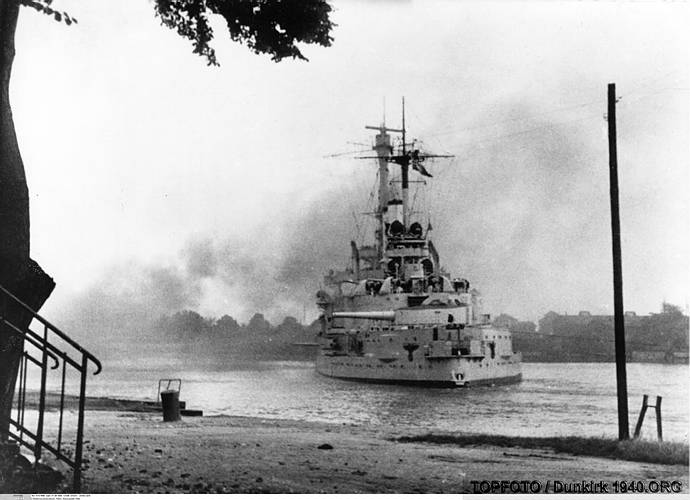
KMS Schleswig-Holstein bombarding the fortress of Westerplatte on the opening day of World War Two.
German Army Wehrpass of Alfred Junghams
These documents were issued to all German men of military age and upon entering the military were held by the administration function of the relevant unit. They are a complete record of a soldier's service, containing a passport size photograph, personal details, details of military service, training, qualifications, promotions, awards and a summary of his medical history and vaccinations.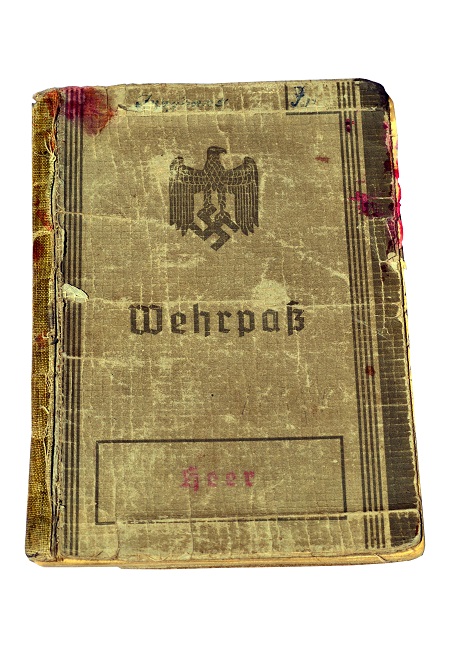
These documents were issued to all German men of military age and upon entering the military were held by the administration function of the relevant unit. They are a complete record of a soldier's service, containing a passport size photograph, personal details, details of military service, training, qualifications, promotions, awards and a summary of his medical history and vaccinations.

Born in 1915 in Dresden, Alfred Junghams was drafted in 1936. Initially joining Infantry Regiment 52, in 1938 he was promoted to Gefreiter and transferred to Infantry Regiment 103 and was part of the German forces which occupied the Sudetenland and Czechoslovakia in 1938 / 39.
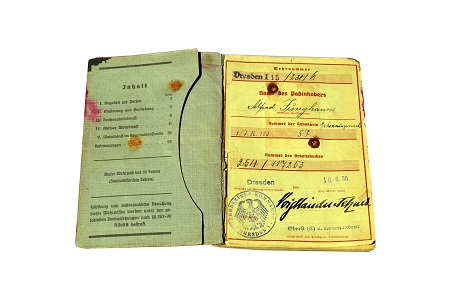
In September 1939 his unit was attached to 4th Infantry Division, part of the 10th Army under General Reichenau which attacked Poland from the south-west. He was involved in numerous engagements in Poland including Lublinec, Liswarta River, Janow, Wieprze River and finally ending the campaign in Lublin.
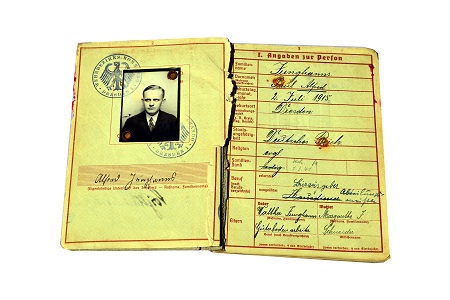
During the early summer of 1940 he appears to have spent a couple of months in hospital thus missing the campaigns in France and the Low Countries. After spending a year or so in Belgium and France manning coastal defences he appears to have been sent to the Russian front and was engaged in defensive fighting around Orel. Returning to the West he appears to have spent a further month in the Netherlands on security duties before being hospitalised once more and eventually being discharged in 1943 as medically unfit for active service.
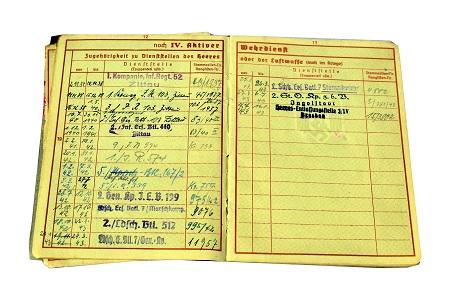
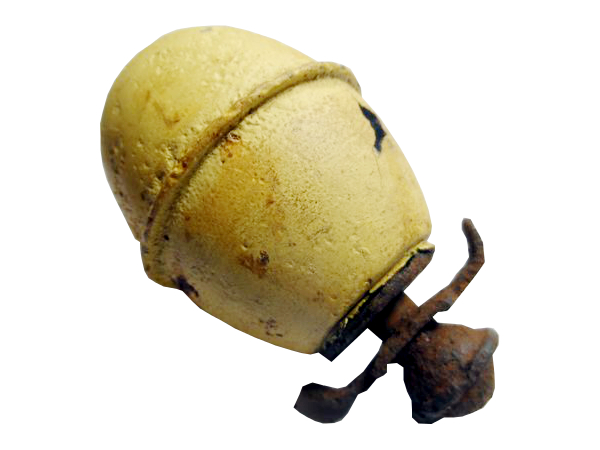 German Model 1939 'Egg' Offensive Hand Grenade.
German Model 1939 'Egg' Offensive Hand Grenade.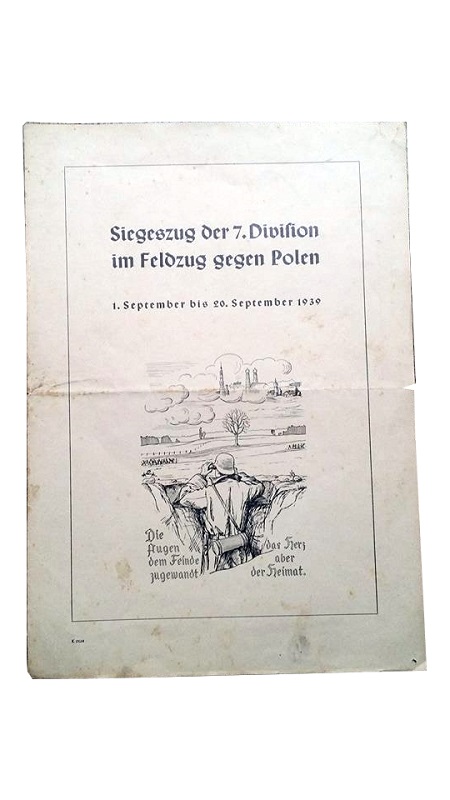
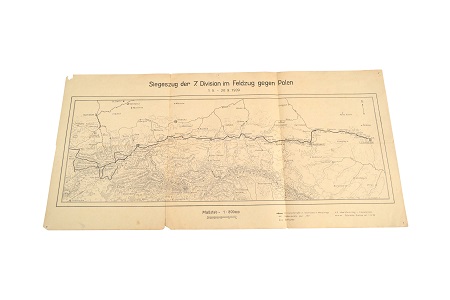 Post battle 'souvenir' map booklet describing the achievements of the German 7th Panzer unit in Poland in 1939.
Post battle 'souvenir' map booklet describing the achievements of the German 7th Panzer unit in Poland in 1939.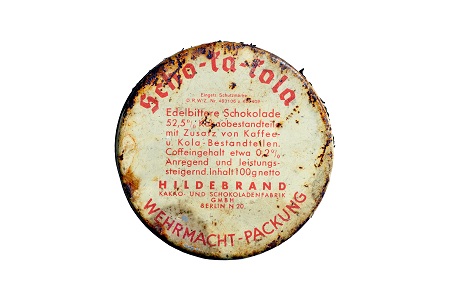 German Army issue tin of Scho-Ka-Kola. A chocolate with a high caffeine content.
German Army issue tin of Scho-Ka-Kola. A chocolate with a high caffeine content.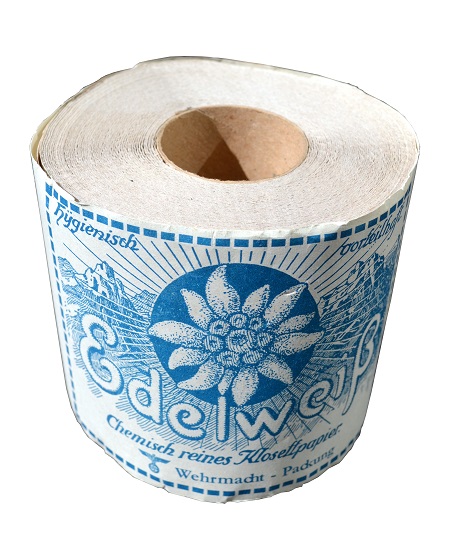
Roll of German Army toilet roll.
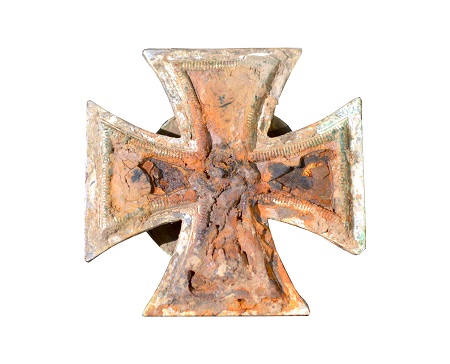 Iron Cross First Class. Discovered in a box buried on the Polish/Czech Border, assumably hidden in the retreat in 1945.
Iron Cross First Class. Discovered in a box buried on the Polish/Czech Border, assumably hidden in the retreat in 1945.To view a German Army uniform, click here.
To view the death cards of two Germans who died in Poland, click here.
Back
